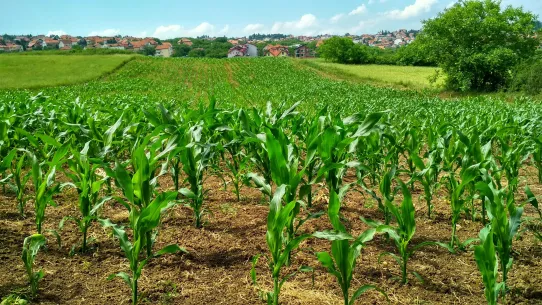Research reveals why women-led farms are more sustainable
Imre Fertő & Štefan Bojnec
source: HUN-REN Hungarian Research Network – News – 2025.01.28.
Despite women being more environmentally conscious in farming than men, they continuously face barriers. This gender inequality was highlighted by a researcher from the HUN-REN Centre for Economic and Regional Studies (HUN-REN KRTK) through examples from Slovenia and Hungary. The researchers also provide insights into the measures that could help reduce the gender gap in agriculture.
The introduction of agri-environmental schemes (AES) under the European Union’s Common Agricultural Policy (CAP) has been a crucial step in mitigating the effects of climate change and promoting sustainable agriculture, the researchers emphasized that. However, they point out that little attention has been given to the impact of these subsidies on gender equality. This aspect was analyzed based on agricultural experiences in Slovenia and Hungary.
Agri-environmental schemes
The subsidy scheme, offering non-repayable flat-rate support, encourages farmers to adopt practices over a five-year period that contribute to preserving and improving environmental conditions. These practices include crop cultivation, orchard and vineyard management, and grassland farming. The initiative aims to, among others, reduce the use of fertilizers and pesticides while protecting soil quality, water resources, and biodiversity, according to an announcement from the National Chamber of Agriculture on the latest subsidies.
The results clearly indicate that agricultural farms managed by women are more environmentally conscious than those led by men, both in terms of adopting agri-environmental measures and the intensity of their application.
Their research reveals that female farmers in both countries are highly committed to sustainable farming practices. Moreover, they often prioritize diversification, organic farming, and the long-term sustainable management of resources, which align closely with the objectives of agri-environmental schemes (AES). However, systemic inequalities limit their ability to apply these practices on a broader scale. Female farmers often face barriers in areas such as land ownership, access to credit, and technical training. In Hungary, structural disadvantages – such as smaller farm sizes and limited resources – also hinder women farmers from fully leveraging the benefits of agri-environmental schemes, the researchers note.
To improve these ratios and enable female farmers to apply for subsidies or implement agricultural developments under similar conditions, the researchers suggest incorporating several key elements into the fundamental agricultural mindset and application criteria.


